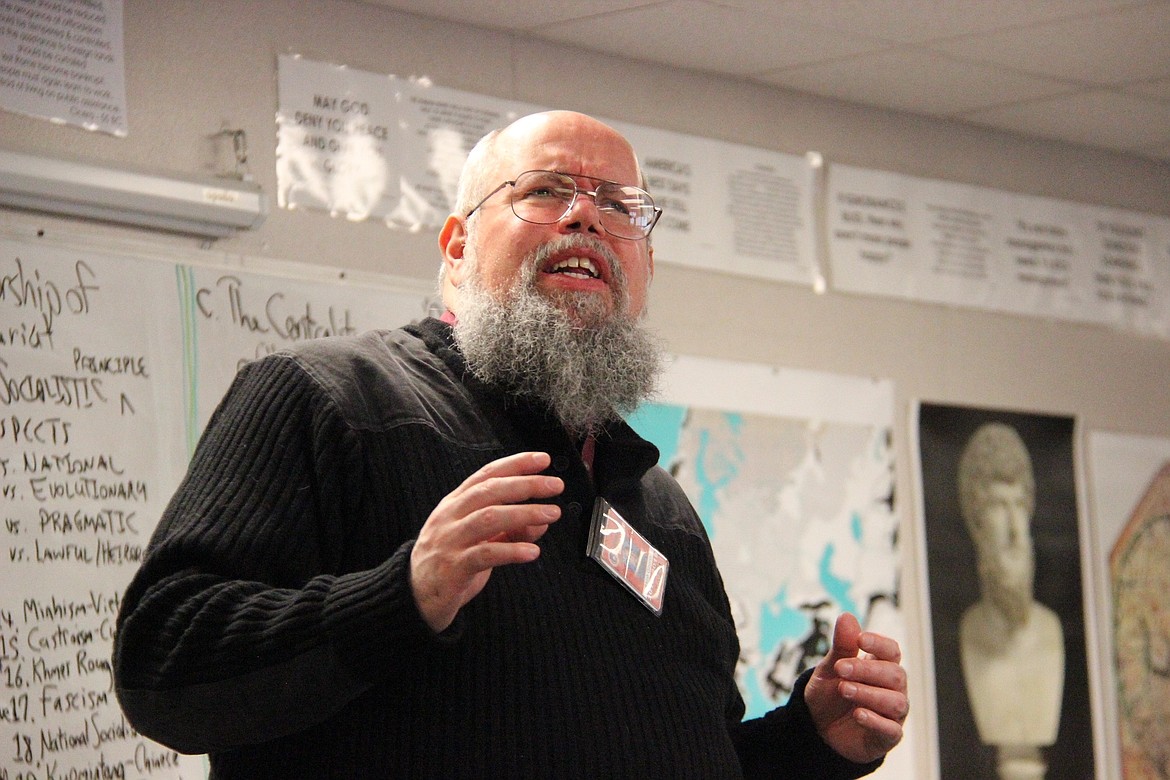OPINION: Beguiled and ensorceled
For me, few books are as important as J. R. R. Tolkien’s “Lord of the Rings”. Written by a WW I veteran, Oxford language professor, devout Catholic, and lover of Nordic and Saxon culture, this trilogy explores the challenges faced by anyone who chooses to serve the good in life.
As we each descry the world around us in order to discern our wisest path forward, we face a problem that Tolkien explored. We utilize news sources in many audiovisual media, from print journalism to online live interactive events.
We gaze intently at our wider world from afar. Vicariously, we experience distant events that inform our understanding of what is real.
In the “Lord of the Rings” trilogy, seeing stones called Palantiri serve the same function as does our modern media. These literal crystal balls allow certain elite leaders an unparalleled view of events that would otherwise be hidden.
A Palantir can convey secret information that could alter the fate of nations, allowing those leaders in possession to react to problems that others had not as yet even perceived.
This sounds precisely like the kind of edge that leaders in our real world crave; the ability to triumph over adversity through subtle analytical instrumentalities.
Today, such privileged information is not exclusive to a handful of global would-be oligarchs. Anyone with access to the Internet can scry the world’s news looking for patterns. Like never before, we can each become as informed as we want to be.
Tolkien did not write of such amazing abilities with relish. His writing illustrates the danger that such distant viewing can pose to objective understanding, a sense of fair proportion, and even to sanity itself.
The cleverest of all human leaders in the “Lord of the Rings” was Denethor, Steward of Gondor. He possessed a Palantir, which gave him an advantage, allowing his rule to succeed where others would have failed.
Among Tolkien’s most prominent servants of good were the Wizards; literal Angels in human form. Their leader was Saruman the White. Accounted the greatest of the Wise, he also used a Palantir to see far and wide those things hidden to all others.
Anyone familiar with Tolkien’s trilogy know that both Denethor and Saruman are not the heroes who decisively stop the triumph of evil. Their stories are each tragedies about our capacity for self-delusion.
Both Denethor and Saruman betray the good in acts redolent with despair. Denethor commits suicide and almost murders his own son after sabotaging the defenses of his great nation. Saruman actually takes to the field of battle in service to the enemy, believing that he can survive evil by allying with the Dark Lord.
Both brilliant minds were seduced by vanity and deceived by data. Both believed themselves up to the challenge of seeing the world from a God’s-eye perspective. Both were destroyed by what they beheld.
In the “Lord of the Rings”, the Palantiri were secretly controlled by the enemy. The content viewed by Denethor and Saruman was shaped to illustrate the utter hopelessness of standing against the coming crisis. What each mind beheld was true, but it was shown out-of-context with the intent to induce hopelessness.
Even if tech censorship did not exist, we each today resemble Denethor and Saruman, descrying from afar as if that would give us true perspective. If we allow ourselves to be seduced by the out-of-context, out-of-proportion flight from both common sense and common decency that is today’s media, we each risk a despair that will make us worse than useless if a crisis really develops.
We must remember that the only certain defeat is when we choose to stop fighting. We should put away today’s Palantiri and reconnect with actual living people. No evil is unstoppable, and no crisis is hopeless.
When facing crisis, we can become indomitable by rejecting the conceit of knowledge. We can never know all possible outcomes of our actions. Despair is as much of a leap of faith as is hope, but with none of the benefits.
Instead, we can embrace something better; faith, hope, and love. In doing so, we might just be like Tolkien’s true heroes, Frodo, Sam, Aragorn, and Gandalf, who never allowed despair to take them out of the fight.
In Maine and then Idaho, Ralph K. Ginorio has taught the history of Western civilization to high school students for nearly a quarter century. He is an “out-of-the-closet” Conservative educator with experience in special education, public schools, and charter schools, grades 6-12. He has lived in Coeur d’Alene since 2014. Email: rginorio@cdapress.com

